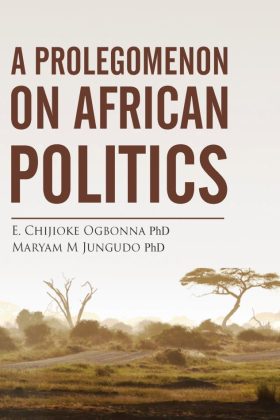Social Mobilisation and Critical Citizenry in the Democratisation Process
₦3,000.00
The book is about the interrelationship between social mobilization, critical citizenry and democratization. The text interrogated Nigeria’s experience from the background of the period of transition without end, that is, from 1985 till 1999, which saw the daunting oscillation of Nigerian headship from one military regime to the other. It also prognoses the trajectory of civil rule from 1999 till 2015, but provides an insight that is fair enough to give a fuller grasp of the future of Nigeria’s democracy. The understanding of the author, as drawn from a vast study of both empirical and theoretical strands is that democracy is not given on a platter of gold, it rests on the citizens to evolve and determine its dynamics in terms of quality and outcome. The book, however, understands the dynamics of social mobilization, including the rich provisions of the social media in the process. While democracy remains a journey and never a destination, it is the capacity of the citizens to drive the process that brings the best of the system. In all democracy is driven by critical citizenry. The book has 10 Chapters as follows:
1. State-Society Relations in the Democratisation Process
2. Democracy, Democratisation and Democratic Consolidation
3. Cycles of Intra-Military Oscillation of Power Since 1985
4. The Trajectory of Civil Rule in Nigeria Since 1999
5. Critical Citizenry and Democratisation
6. Social Mobilisation, Critical Citizenry and Democratisation
7. The Theory of Social Activism and Citizens’ Engagement
8. The Social Media and Political Mobilisation
9. Limitations of the Social Media in Political Mobilisation
10. Conclusions and Recommendations




